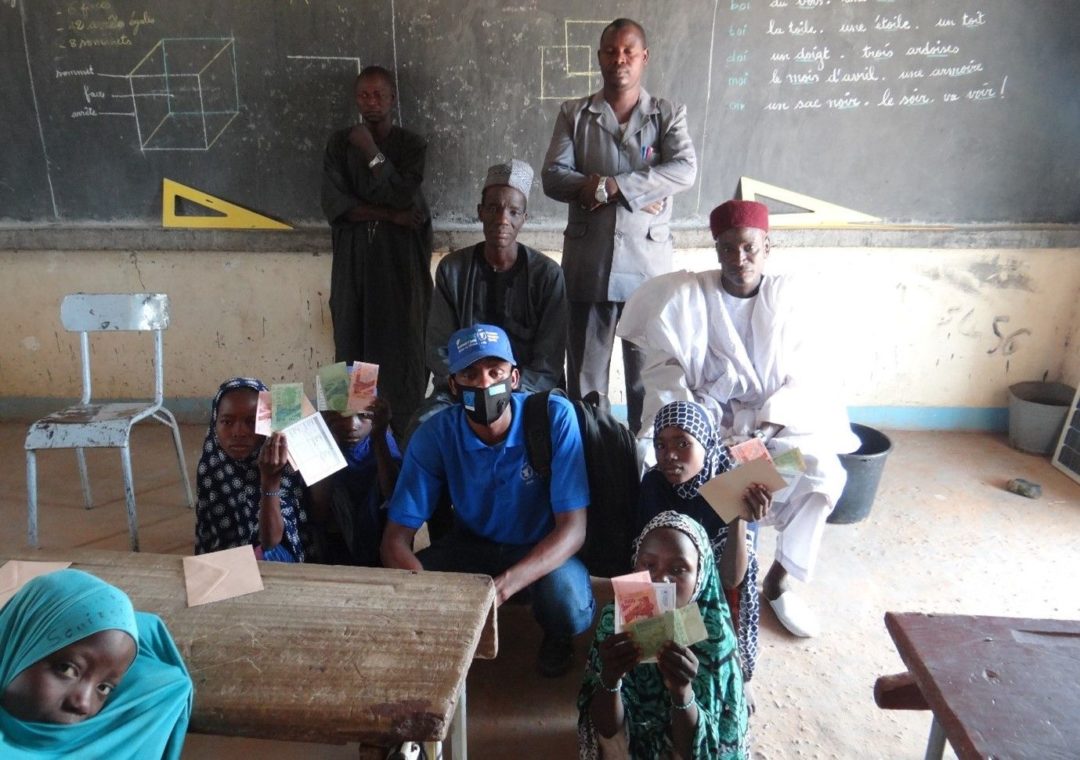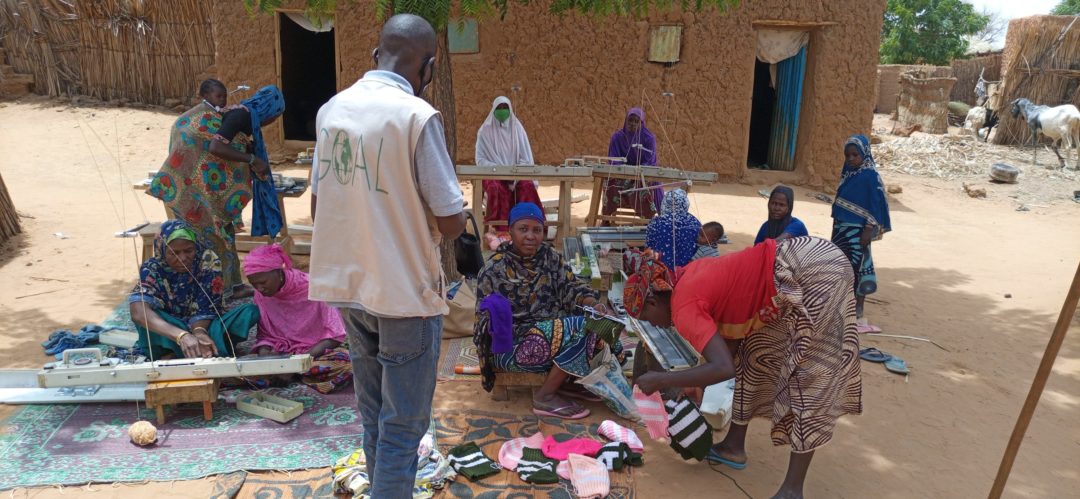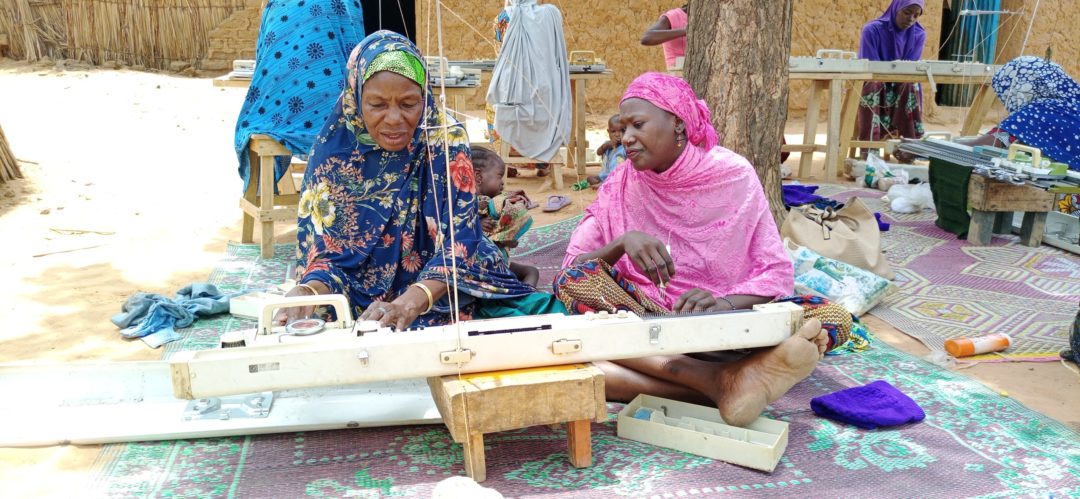 Stories
Stories
July 11, 2022 • 4 min read
Poverty, conflict, and other cultural practices limit access to education for many Nigerien children. The country’s education indicators are among the lowest in the world, with primary school enrolment rates of 83% for boys and only 72% for girls.
UNICEF estimates less than 60% of primary school students enroll for secondary school and only 20% of these students remain in school until leaving exams. While literacy rates across the country are low, only 14% of women compared to 42% of men in Niger can read and write.
Women and girls in rural areas disproportionately affected.

Katambadje school management committee with some of the scholarship recipients.
Research has shown investing in girls’ education means they are less likely to marry young, more likely to lead healthier and more productive lives. In their adult lives, they have better chances of earning higher incomes and can engage more effectively in processes that affect them and their families.
GOAL is implementing empowerment projects and interventions in Niger’s rural communities to give both girls and women a better chance in life.
Supporting communities to keep girls in school
To reach them young, GOALies in Niger have been working with the Dogo, Gafati and Koleram communities to identify girls from the most vulnerable families and support them with scholarships. The programme has provided funding for nearly 2,000 girls between the ages of 10 and 19 to ensure they remain in school as long as possible.
Safety concerns, long distances to school and child marriages are among the factors that have caused many women to miss out on formal education.
To cater for such women, GOAL staff in Niger are equipping them with the vocational skills to grow their own food. They are now growing sustainable, high nutrition and climate resistant food that can also help raise a steady income for their families.
Elsewhere, in the Katambadje, Kawour, Farin Rouwa, Angoual Santali and Dan Gueza communities, women have been trained to knit. The project is helping to strengthen community resilience and enabling women to regain their financial independence.

GOALie Oumarou Ousmane Bawa visiting knitters in Katambadje village.
Ladi Habou, a participant from Kawour, is using her new skills to knit clothes for her children, allowing her to invest elsewhere in her children’s future.
“Before, we did not know how to make hats. We used to buy them for our children but now we make them ourselves and also sell them to others. We knit them by hand, but more often we use knitting machines.”
To help women like Ladi progress their ventures, project participants have been provided with wool, hooks and sowing machines following their training.
Among other products, the women make hats, dresses and other clothing items sold within their local communities.
Empowering generations
The women are enjoying their success and now have plans to expand.
“In the long run, we would like it to become a big shop. We aim to train fellow women to knit and target the local market with products that we knit,” says Ladi.

Some of the participants from Kawour Village going through their normal work day.
It is estimated that around 76.3% of women aged 20–24 years were married or in a union before the age 18 in Niger. The adolescent birth rate stood at 154 per 1,000 women aged 15-19 as of 2016, up from 146 per 1,000 in 2015. Married early and ill-equipped to stand up for themselves, many of them experience gender-based violence.
By increasing access to education and economic opportunities, GOAL teams in Niger are working with communities to protect women from such circumstances.
“We are happy with this job that GOAL is teaching us because it is a job that we can benefit from every day,” says another participant from Katambadje village, Zeinabou Bouhari.
While strengthening their financial situation, Zeinabou, believes the project is also inspiring other women to learn new skills.
“It also encourages others to come and learn from us so that the knowledge can be passed on as a legacy to our children.”
You can support GOAL’s work and build brighter futures for girls and women in Niger with a donation today.
